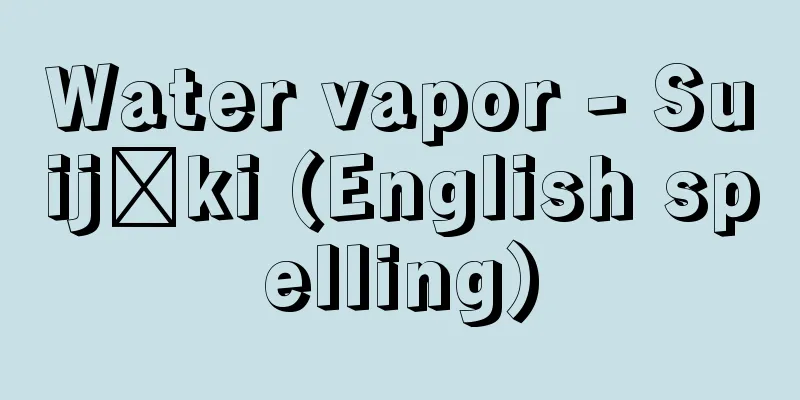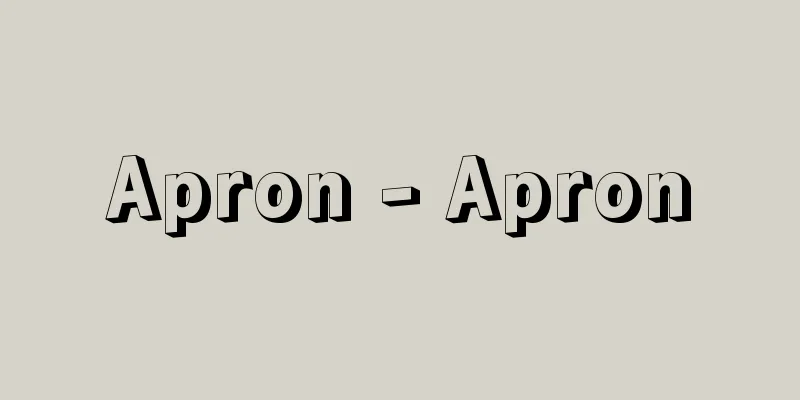Water vapor - Suijōki (English spelling)

|
This refers to water in a gaseous state. Above its critical temperature of 374.2°C, water cannot exist as a liquid or solid, regardless of pressure, and always exists as a gas, i.e., water vapor. Below that temperature, water can coexist with water vapor, water, and ice, depending on the temperature and pressure, but at a certain temperature, there is a limit to the amount of water vapor that a certain volume of space can contain. In other words, water vapor that can coexist with water or ice can reach a certain water vapor pressure. This is called the saturated water vapor pressure, and it cannot exceed that. At 1 atmosphere, the saturated water vapor pressure is 1 atmosphere at 100°C. Therefore, if the heat of vaporization is available, water will immediately become water vapor at 1 atmosphere, and boiling will occur. Similarly, at 0.2 atmospheres, water boils at about 60°C, and at 40 atmospheres, it will not boil until it reaches about 250°C. Water vapor is colorless and transparent, but steam looks white. This is because when the water vapor comes into contact with air, some of it turns into small water droplets. In steam engines, this is called wet steam, and otherwise it is called dry steam. The amount of water vapor present in the air is often expressed as humidity, and when the relative humidity becomes high and there is water vapor present that exceeds the saturation vapor pressure at that humidity, it condenses and forms water droplets. However, in the case of clean air, it may simply become supersaturated and not form water droplets. When there are a lot of fine particles such as dust or smoke in the air, they tend to act as nuclei to form fog or rain. Most of the water molecules in water vapor are thought to be in a single molecule state, but at high temperatures and low pressures, some of them dissociate into hydrogen and oxygen (for example, 53% at 0.1 atmosphere and 3500°C). This makes them chemically active and they react with various substances. For example, at temperatures above 100°C, they react with sulfur, [Nakahara Katsunori] [References] | | | | | | [Supplementary information] |©Shogakukan "> Saturation Vapor Pressure and Density Source: Shogakukan Encyclopedia Nipponica About Encyclopedia Nipponica Information | Legend |
|
気体状態の水をいう。水は臨界温度である374.2℃以上では、どのような圧力でも、液体あるいは固体として存在できず、つねに気体、すなわち水蒸気として存在する。それ以下の温度では、温度および圧力に従って、水蒸気、水、氷と共存することができるが、一定温度では一定体積の空間が含むことのできる水蒸気の量には限度がある。いいかえれば、水もしくは氷と共存することのできる水蒸気は、一定の水蒸気圧まで達することができる。これを飽和水蒸気圧といい、それ以上にはならない。1気圧のもとでは100℃で飽和水蒸気圧が1気圧となる。したがって気化熱さえ得られれば、水はただちに1気圧の水蒸気となるので、沸騰がおこる。同じように0.2気圧では約60℃で沸騰するし、40気圧では約250℃とならなければ沸騰しない。 水蒸気は無色透明であるが、いわゆる湯気は白く見える。これは水蒸気が空気に触れて、一部が細かい水滴となるためである。蒸気機関などでは、このようなときを湿り蒸気、それ以外を乾き蒸気といっている。 空気中に存在する水蒸気の量は湿度で表されることが多く、相対湿度が高くなって、その湿度での飽和水蒸気圧以上の水蒸気が存在すると、凝結して水滴を生ずる。ただし、きれいな空気の場合には過飽和の状態になるだけで、水滴を生じないこともある。空気中に塵(ちり)や煙などの微粒子が多いときは、それが核となって霧や雨となりやすい。 水蒸気の水分子は、ほとんどが単分子状態であると考えられるが、高温・低圧になると、一部は水素と酸素とに解離する(たとえば、0.1気圧、3500℃で53%)。このため、化学的にも活性となり、各種の物質と作用する。たとえば100℃以上では硫黄(いおう)と反応し、 [中原勝儼] [参照項目] | | | | | | [補完資料] |©Shogakukan"> 飽和水蒸気圧および密度 出典 小学館 日本大百科全書(ニッポニカ)日本大百科全書(ニッポニカ)について 情報 | 凡例 |
<<: Steam reforming - Steam reforming
>>: Seaplane - Suijōki (English spelling)
Recommend
Warabimon - Warabimon
A type of plant motif. One end of the curved line ...
Indian Alocasia - Indian Alocasia
... A . cucullata Schott (Chinese taro) has circu...
Maqdisi, Abū `Abd Allāh Muḥammad ibn Aḥmad
Born: circa 946, Jerusalem [Died] c. 1000 Arab geo...
Kirikumi lantern
…It is also written as tachiban-gyo, and is calle...
flauto traverso (English spelling) flautotraverso
…As a result of these efforts, the flute was reco...
Detoxification - Gedoku (English spelling)
This refers to a certain biochemical reaction tha...
Mechanical Metallurgy
...The importance of chemical metallurgy, which h...
Matters concerning the Korean Military Police
…The Military Police Ordinance was formally enact...
On the Idea of Comedy
...The genres proposed by Diderot were "seri...
Q de Paris - Q de Paris
...A waistband worn under a woman's skirt to ...
Iwakura Mission
The mission, consisting of 46 members at the time...
Solid brain
…Of these, the neurons of the central nervous sys...
Nakhon Ratchasima - Nakhon Ratchasima (English spelling) Nakhon Rachasima
A city in northeastern Thailand. The capital of Na...
Quasi-rent - Junchidai
The term "rent" refers to the income der...
Moka [city] - Moka
A city in the southeastern part of Tochigi Prefect...









